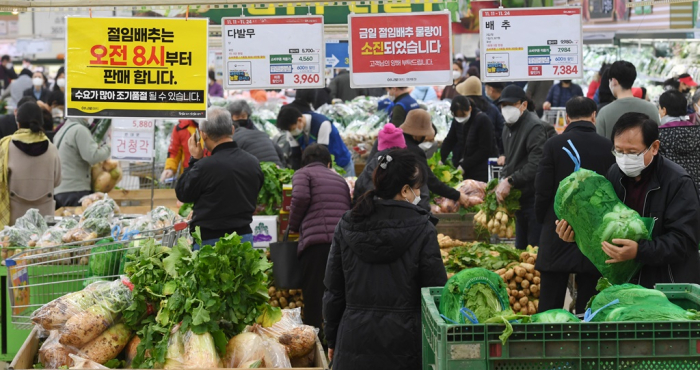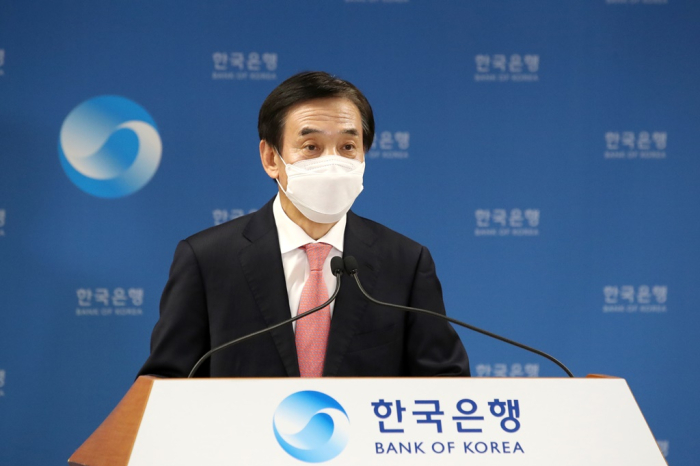Economy
Korean inflation nears 10-year peak in November, fanning rate hike views
Ik-Hwan Kim
Dec 02, 2021 (Gmt+09:00)

South Korea’s consumer inflation hit a near-decade peak in November, fanning expectations that the central bank will raise interest rates again as early as January, while the Bank of Korea predicted inflation would top its new forecast -- revised higher just last week.
Consumer prices soared 3.7% last month from a year earlier, the fastest growth since December 2011 and up from 3.2% in October of this year, government data showed on Dec. 2. Prices of petroleum fuels and livestock products surged 35.5% and 15%, respectively, while vegetable prices jumped 9.3%.
After the data was released, the BOK said the annual inflation rate could be higher than its 2.3% forecast revised up from the previous 2.1% on Nov. 25, given stronger demand-side pressure.
“Domestic inflationary pressure is expected to widely spread if increasing volatility in oil prices and global supply bottlenecks extend or intensify,” said the BOK.
JANUARY HIKE MORE LIKELY
The central bank is expected to speed up further monetary policy tightening. BOK Governor Lee Ju-yeol signaled another hike as early as the first quarter of next year on Nov. 25 when the BOK raised the base interest rate by 25 basis points to 1.00% as widely expected.

Since inflation is accelerating faster than earlier predictions, the central bank is more likely to ramp up borrowing costs in January, analysts said. Lee may provide a clearer signal on the timing of a further increase during a BOK meeting on inflation later this month.
Record COVID-19 infection rates with the onset of the new Omicron variant may not have a big impact on the tightening move, they added.
“Economic units may reduce voluntarily activities, slowing down economic growth due to the Omicron. But if the variant has a low mortality rate, that will not affect the pace of policy rate hikes,” said Hana Financial Investment analyst Lee Mi-seon.
The country’s daily COVID-19 case numbers rose to a record high of 5,266 on Dec. 1, according to the Korea Disease Control and Prevention Agency. The government may announce measures to curb the pandemic as early as Dec. 3, local media reported.
Write to Ik-Hwan Kim at lovepen@hankyung.com
Jongwoo Cheon edited this article.